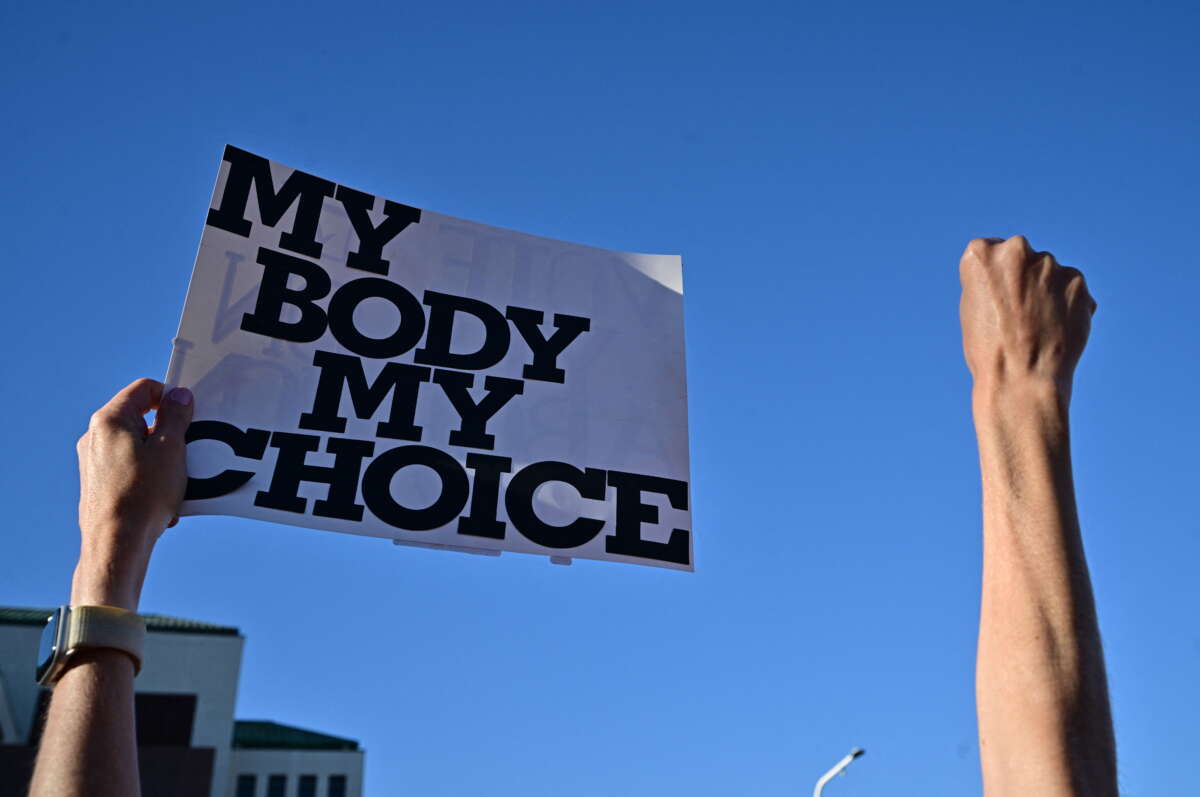Truthout is an indispensable resource for activists, movement leaders and workers everywhere. Please make this work possible with a quick donation.
Montanans Securing Reproductive Rights has officially launched a campaign to place a state constitutional amendment safeguarding abortion rights on the ballot for the general election this November. The group will need to gather 60,000 signatures from Montana residents by June 21 to qualify for the ballot.
“With 2024 shaping up to be the biggest year ever for abortion on the ballot, it is critical that Montanans can make their voices heard on this issue,” Kelly Hall, executive director of the Fairness Project, said in a statement.
The ballot initiative would amend the state constitution “to expressly provide a right to make and carry out decisions about one’s own pregnancy, including the right to abortion” and “would prohibit the government from denying or burdening the right to abortion before fetal viability.”
While Montana’s highest court has recognized “procreative autonomy” under the Montana Constitution, which protects the right to abortion, anti-abortion advocates have attempted to limit this right.
“Anti-abortion extremists have tried to interfere in Montanans’ personal health care choices again and again. That’s totally unacceptable — Montanans deserve to make their own decisions about reproductive care, not have politicians decide for them,” Hall said.
In 2022, voters rejected LR-131, a referendum that would have given fetuses “born alive” legal personhood and lead to the criminalization of healthcare professionals. The initiative would have had dire consequences for people with pregnancy complications, Timothy Mitchell, a maternal-fetal medicine specialist, told the Montana Free Press in 2022.
“The first thing that came to my mind [when I saw the language of this referendum] was like, these patients who have these horrific pregnancy complications are all going to be affected by this,” Mitchell said. “And we’re going to have to intervene under threat of decades of prison and financial ruin.”
In 2023 the Montana State Legislature passed House Bill 625, a bill similar to LR-13, which was signed by Governor Greg Gianforte (R) on May 3, 2023. HB 625 mandates that healthcare providers offer treatment to an infant born alive following an attempted abortion, with penalties including fines and potential imprisonment for up to five years for noncompliance. In the same legislative session, the state also enacted a law specifying that the state Constitution “may not be construed as creating or recognizing a right to abortion or to governmental funding of abortion.”
Montana is among 13 states currently working to have constitutional amendments related to abortion on the 2024 ballot. Since Dobbs, 6 states have voted on constitutional amendments related to abortion, with access to abortion winning in every state.
“Republicans and abortion rights opponents continue to underestimate the seismic effects of the Dobbs decision on broad swaths of the electorate. Abortion rights are politically popular,” Lauren Rankin wrote for Truthout in November.
Twelve percent of all voters say abortion is the “most important issue” for the 2024 election, and half of all women aged 18-49 believe that the 2024 elections will have a “major impact” on abortion access nationwide as well as in their own state.
A terrifying moment. We appeal for your support.
In the last weeks, we have witnessed an authoritarian assault on communities in Minnesota and across the nation.
The need for truthful, grassroots reporting is urgent at this cataclysmic historical moment. Yet, Trump-aligned billionaires and other allies have taken over many legacy media outlets — the culmination of a decades-long campaign to place control of the narrative into the hands of the political right.
We refuse to let Trump’s blatant propaganda machine go unchecked. Untethered to corporate ownership or advertisers, Truthout remains fearless in our reporting and our determination to use journalism as a tool for justice.
But we need your help just to fund our basic expenses. Over 80 percent of Truthout’s funding comes from small individual donations from our community of readers, and over a third of our total budget is supported by recurring monthly donors.
Truthout has launched a fundraiser to add 460 new monthly donors in the next 8 days. Whether you can make a small monthly donation or a larger one-time gift, Truthout only works with your support.
